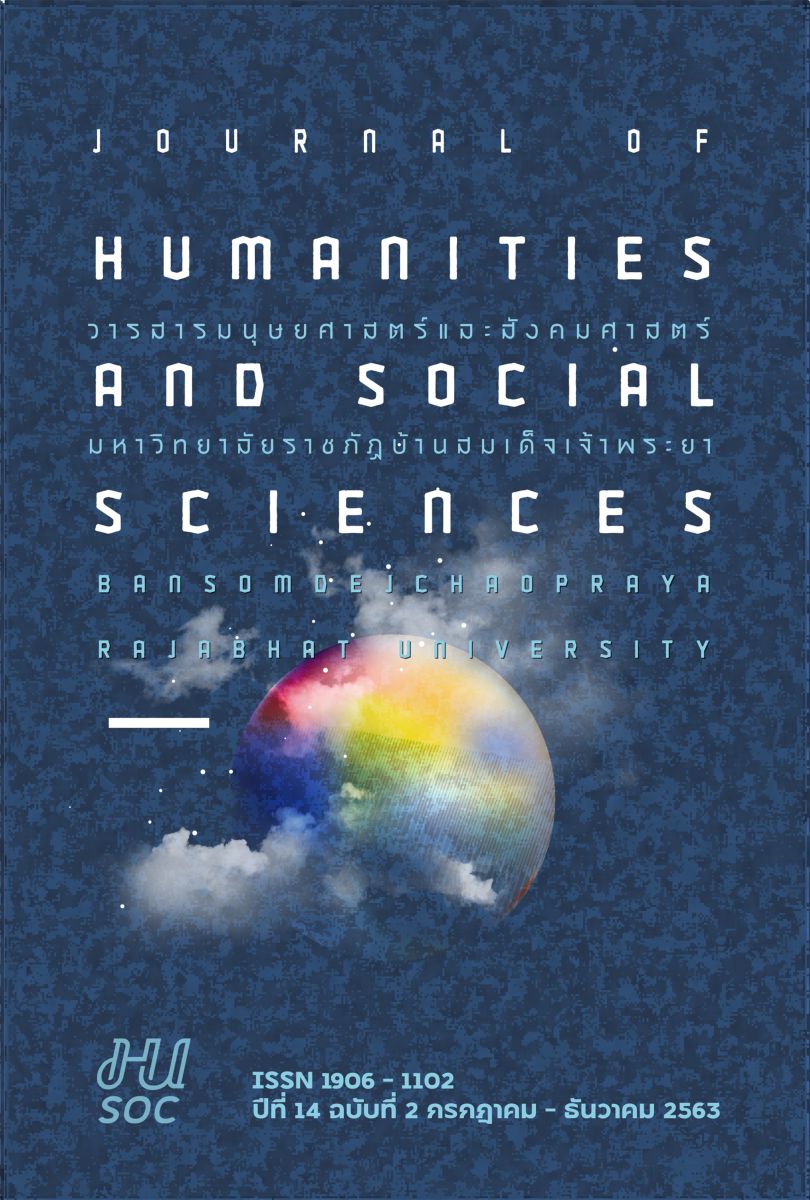Community business and modern marketing in a digital society
Keywords:
Community business, Modern marketing; Digital societyAbstract
Community enterprises are run by groups of people with ties to the production of goods, services or other activities as a common way of life to join together to conduct business. Community enterprises are important and create a stable base for the country by strengthening the grassroots economy, and promoting career opportunities to create jobs and income and reduce expenses. The potential of community enterprises remains at a moderate level because most incur problems with adequate marketing, finance and management. These obstacles impact the development of strong community enterprises that can adapt and survive in changing economic conditions. Community enterprises must be developed and upgraded to increase their potential in this new age of digital marketing. Novel marketing strategies must address how consumer behavior in the digital society affects lifestyle and purchasing decisions. Community enterprises have to adopt modern marketing concepts to consumer demand including price suitability channels, ease of purchase, communication and presentation. Marketing perspectives must be driven by customers and target groups to ensure rapid community enterprise development. If entrepreneurs do not adapt their marketing strategies to the digital society, then community enterprises will lag behind and eventually lose their business competitiveness.
References
กรมส่งเสริมอุตสาหกรรม. (2558). นโยบายดิจิทัลอิโคโนมี (Digital Economy). สืบค้น 2 กุมภาพันธ์ 2563. จาก https://www.dip.go.th/portals/0/puttipong/web%2520DIP/File/prass%2520release.doc+&cd=3&hl=th&ct=clnk&gl=th.
โกสินทร์ ชำนาญพล และสุดาใจ โล่ห์วนิชชัย. (2562, พฤษภาคม - สิงหาคม). การพัฒนารูปแบบเทคโนโลยีดิจิทัลเพื่อส่งเสริมศักยภาพผู้ประกอบการ. วารสารราชพฤกษ์. 17(2), 130-138.
ธนพล ทรัพย์สมบูรณ์. (2562). แนวคิดการตลาดยุคใหม่ต้อง “โมเดิร์น มาร์เก็ตติง”. สืบค้น 2 กุมภาพันธ์ 2563. จาก https://www.posttoday.com/economy/news/603766.
พระราชบัญญัติส่งเสริมวิสาหกิจชุมชน พ.ศ. 2548. (2548). ราชกิจจานุเบกษา, เล่ม 122 ตอนที่ 6 ก, 1-13.
สำนักงานเลขาธิการสภาผู้แทนราษฎร. (2561). การส่งเสริมและพัฒนาวิสาหกิจชุมชนจากภาครัฐ. กรุงเทพฯ: ผู้แต่ง.
สุภาสพงษ์ รู้ทำนอง. (2562). การยกระดับผลิตภัณฑ์โอทอปน้าพริกพ่ออนงค์โดยใช้แนวคิดทฤษฎีส่วนประสมทางการตลาดในมุมมองของผู้บริโภค (4C’s). รายงานสืบเนื่องจากการประชุมวิชาการระดับชาติ ครั้งที่ 6 สถาบันวิจัยและพัฒนามหาวิทยาลัยราชภัฏกำแพงเพชร. กำแพงเพชร: มหาวิทยาลัยราชภัฏกำแพงเพชร.
เสน่ห์ ศรีสุวรรณ. (2560). 4P หลบไป การตลาดยุคใหม่ต้อง “P2C”. ค้นเมื่อ 2 กุมภาพันธ์ 2563.จาก https://columnist.smartsme.co.th/smartsme-sanae/2176.
อาทิตย์ สุจเสน และนิตยา ทัดเทียม. (2559). การจัดทำบัญชีธุรกิจชุมชนภายใต้โครงการหนึ่งตำบลหนึ่งผลิตภัณฑ์ อำเภอขนอม จังหวัดนครศรีธรรมราช. (รายงานผลการวิจัย). สงขลา: มหาวิทยาลัยเทคโนโลยีราชมงคลศรีวิชัย.
อาภาภัทร บุญรอด. (2560). เข้าใจพฤติกรรม Connected Consumers ชาวไทยในยุคสังคมดิจิทัล. สืบค้น 2 กุมภาพันธ์ 2563, จาก https://www.bangkokbiznews.com/blog/detail/641241.
อาภาภัทร บุญรอด.(2562). การตลาดยุคใหม่ และสังคมดิจิตัล. ค้นเมื่อ 2 กุมภาพันธ์ 2563. จาก https://www.bangkokbiznews.com/blog/detail/64723
Downloads
Published
How to Cite
Issue
Section
License

This work is licensed under a Creative Commons Attribution-NonCommercial-NoDerivatives 4.0 International License.




